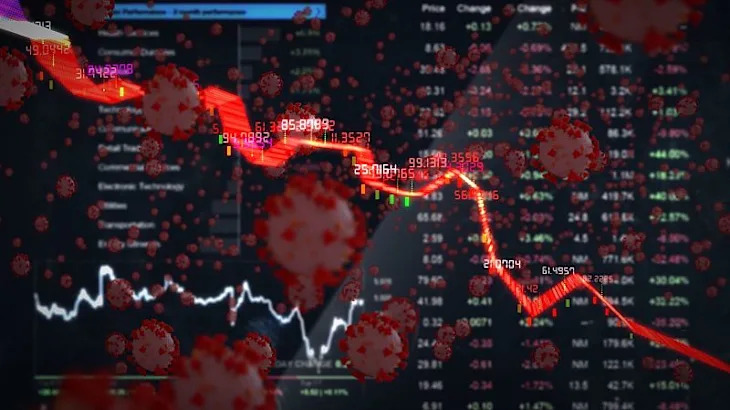
US stock markets drop as investors consider trade impact with China
US stocks gave back some of their historic gains from the day before on Thursday as Wall Street weighed the impact of the ongoing trade war, particularly with China.
The S&P 500 was down 2.3%, a day after surging 9.5% following President Donald Trump's decision to pause many of his tariffs worldwide. The Dow Jones Industrial Average was down 700 points, or 1.7%, as of 15:35 CEST, and the Nasdaq composite was 2.7% lower.
Even a better-than-expected report on inflation on Thursday morning wasn’t enough to get US stocks to add to their surges from the day before, including the S&P 500’s third-best since 1940. Economists said the data wasn’t useful because it offered a view only of the past, when inflation may rise in coming months because of tariffs. A better-than-expected report on joblessness didn’t help much either, with Wall Street’s focus entirely on what’s to come.
“Trump blinks,” UBS strategist Bhanu Baweja said about the president’s decision on tariffs, “but the damage isn’t all undone.”
Related
Trump focus on China
Trump has focused more on China, raising his tariffs on products coming from the world’s second-largest economy to 125%. Even if that were to get negotiated down to something like 50%, and even if only 10% tariffs remained on other countries, Baweja said the hit to the US economy could still be large enough to hurt expected growth for upcoming US corporate profits.
China, meanwhile, has been reaching out to other countries around the world in hopes of forming a united front against Trump. The European Union, though, on Thursday said it will put its trade retaliation measures on hold for 90 days and leave room for a negotiated solution.
Trump and his Treasury secretary, Scott Bessent, sent a clear message to other countries Wednesday after announcing their tariff pause: “Do not retaliate, and you will be rewarded.”
Related
More wild swings ahead?
That has many on Wall Street prepared for still more wild swings to come in the market, after the S&P 500 at one point nearly dropped into a 'bear market' by almost closing 20% below its record. Often, the whipsaw moves had come not just day to day but also hour to hour. The S&P 500 still remains below where it was when Trump announced his sweeping set of tariffs last week on 'Liberation Day.'
“Everything is still very volatile, because with Donald Trump, you don’t know what to expect,” Francis Lun, chief executive of Geo Securities, said. “This is really big uncertainty in the market. The threat of recession has not faded.”